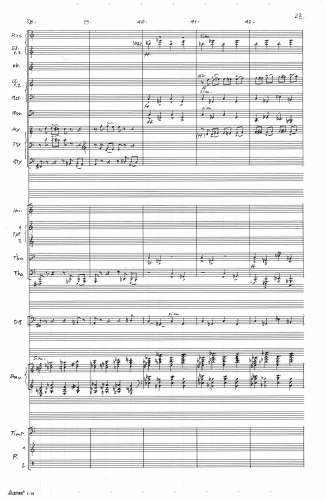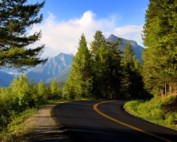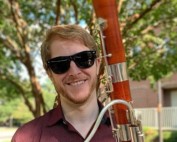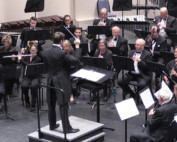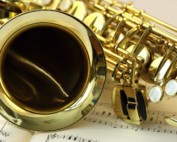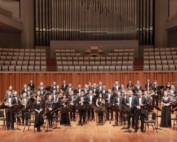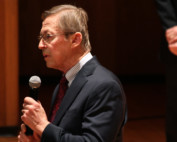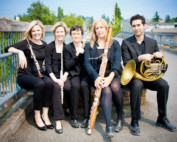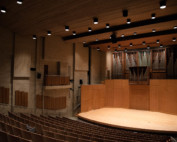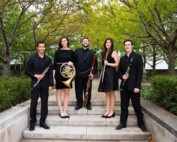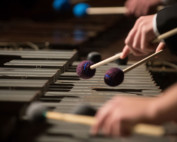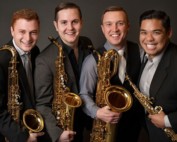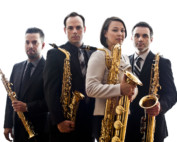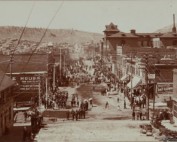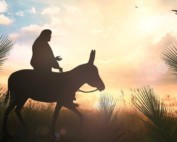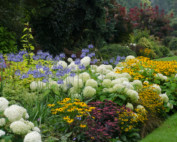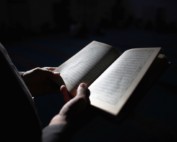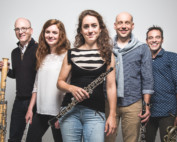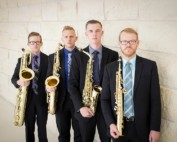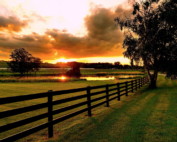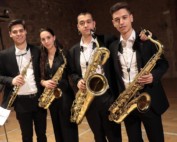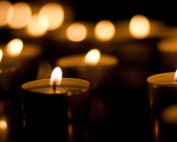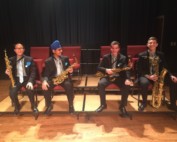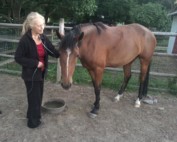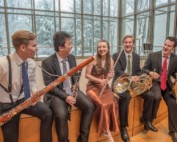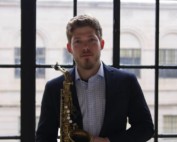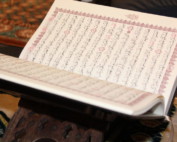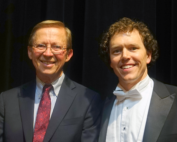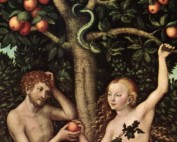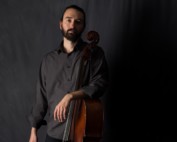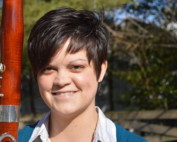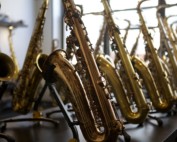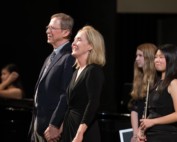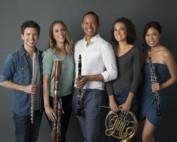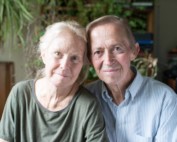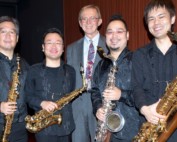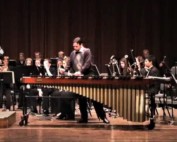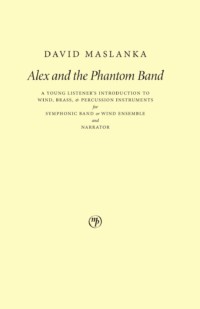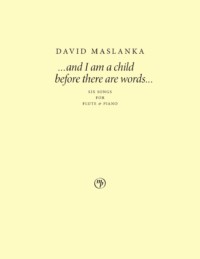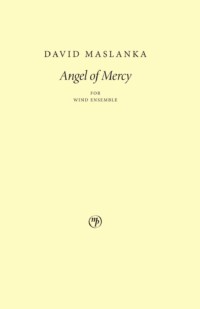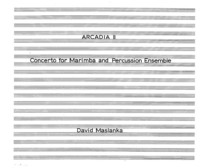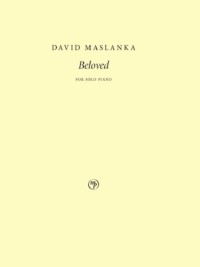Project Description
Solo Piano and Wind Ensemble
2002
27 min.
Listen Now
Illinois State University Wind Ensemble, Stephen Steele, cond., Steven Hesla, Piano
On the album, David Maslanka: Concertos, Symphony No. 4 (2005)
Instrumentation
Solo Pno | Picc Fl-2 Ob BbCl-2 BCl Bsn ASx TSx BSx | Hn-2 Tpt-2 Tbn Tuba DB | Timp Perc-2
- Solo Piano
- Piccolo
- Flute (2)
- Oboe
- Clarinet in B♭ (2)
- Bass Clarinet in B♭
- Bassoon
- Alto Saxophone
- Tenor Saxophone
- Baritone Saxophone
- Horn in F (2)
- Trumpet in B♭ (2)
- Trombone
- Tuba
- Double Bass
- Timpani
- Required Percussion (2 players)
- Orchestra Bells
- Xylophone
- Snare Drum
- Suspended Cymbal (1 sm., 1 lg.)
- Vibraphone
- Bass Drum
- Ratchet
- Tam-tam
- Tom-toms (1 sm., 1 med.)
Movements
- “Dragonfly Delight” – In Memoriam H.B.
- “Enigma”
- “What’s Up?”
- “Howl” – A Vision of St. Francis
- Groucho’s Dance
(Groucho Marx Does the Charleston on Adolf Hitler’s Grave.)
Commissioned by
Program Note
Concerto No. 2 for Piano, Winds, and Percussion was commissioned by, and is dedicated to, pianist Steven Hesla. Steve wanted a piece for a mature soloist, but with ensemble parts that could be managed by good high school players. It was his intention to have a piece that he could perform with various high school ensembles in the state of Montana.
This concerto falls in line with my other recent concertos. Like the saxophone and flute works, this new piece is in five movements. And as in the other concertos, each movement is song-like, and has a programmatic backdrop.
I. “Dragonfly Delight” – In Memoriam H.B.
“H.B.” is Harold Brodkey, a very good writer whom I did not know personally. Brodkey contracted AIDS, and as his illness progressed, he wrote an article entitled “Dying: An Update” which appeared in the February 1994 issue of the New Yorker magazine. I felt a powerful resonance with the following excerpt:
“But, you see, a traumatized child as I was once, long ago, and who recovers, as I did, has a wall between him and pain and despair, between himself and grief, between himself and beshitting himself. That is the measure for me – handling the whole weight of my life in relation to polite bowels. The rest is madness, rage, humiliation.”
The dragonfly is one I saw on a walk at Blue Mountain [near Missoula, Montana]. It was a brief encounter as this elegant and beautiful little creature hovered at grass level near my feet, and then was gone. I offer this delicate and moving music as a moment of delight and consolation for a troubled soul.
II. “Enigma”
“‘Enigma’” grows out of the Bach chorale melody Herr Gott, dich loben wir (Lord God, We Praise You). I have been studying the Bach chorales for many years, and have found them to be amazing touchstones for my own musical invention. The title Lord God, We Praise You set me to thinking about the nature of the universe, and beyond that, the nature of God – and I quickly came to the conclusion that I have barely a clue about either. The music begins quietly, but rises dramatically to a full-throated and awestruck shout of praise.
III. “What’s Up?”
“‘What’s Up?’” is also based on a chorale melody (Wie bist do, Seele, in mir so gar betrübt?). The German title translates roughly as “How are you my soul?” I have reduced this to “what’s up?”, as in “what’s up, Doc?” The music is brash, powerful, and edgy, until the piano concludes with a quiet statement of the chorale. Somethingis up!
IV. “Howl” – A Vision of St. Francis
I had a dream of St. Francis. Initially I was in the presence of a burning hot – thousands of degrees hot – metal object which was shaped something like a bowling pin. In my dream I was required to touch this object, but I had no idea of how to do it without getting seriously burned. It suddenly occurred to me that it was possible to do this. I reached out confidently and placed both hands on the metal object, which turned immediately into a small statue of St. Francis, made of reeds, and dressed as a Chinese peasant. (!) Out of this dream encounter has grown a strange but densely powerful music, related in its intensity and mystery to the praise music of the second movement. I say “howl” because it raises the hair on the back of my neck, and I can feel the howl rising in my throat.

V. Groucho’s Dance
Full title: “Groucho Marx Dances the Charleston on Adolf Hitler’s Grave.” Yes.
I have summarized the following story from Sarah Lawrence Magazine, Summer 2002. The article, entitled “What’s So Funny? The Nature of Comedy”, was written by Gurney Williams III, Elisa DeCarlo, and Celia Regan.
In 1958 on a tour of Europe, Groucho Marx visited the town in Germany where his mother had been born. He discovered that the Nazis had obliterated all Jewish graves and all record of inhabitants from his parents’ time. Marx hired a car and told the driver to take him to Adolf Hitler’s grave in Berlin. They made their way to the bunker where Hitler was said to have committed suicide, and where he was supposedly still buried. The rubble at the site was about twenty feet high. Wearing his characteristic beret, Marx climbed the debris. When he reached the top he stood still for a moment. Then he launched himself, unsmiling, into a frenetic Charleston. The dance on Hitler’s grave lasted a minute or two. Nobody applauded, nobody laughed.
When I read this story, I was electrified. To me, this single gesture is a defining moment in the twentieth century, and in what it means to be truly human. The single person, in the face of the tyrant and the war machine, can say, ”I am alive; I am free; you nave not killed me; you have not killed my people; I dance on your grave.” My music is a free-wheeling romp. It is fast and energetic, with a bit of a biting and sarcastic edge.
Further Reading
Maslanka Weekly: Best of the Web – No. 118, Recent Performances of Mountain Roads
Maslanka Weekly highlights excellent performances of David Maslanka’s music from around the web. This week, we showcase three extraordinary performances of Mountain Roads.
From the Maslanka Archive – No. 37, Conor Bell’s New Dissertation on David’s Bassoon Music
From the Maslanka Archive features media and stories of David's life and work. This week, we are excited to feature Conor Bell's new dissertation on David's Bassoon Music.
Maslanka Weekly: Best of the Web – No. 111, Freshly Uploaded to the Web!
Maslanka Weekly highlights excellent performances of David Maslanka’s music from around the web. This week, we are exited to feature new performances of three works just uploaded to the web in the past seven days: Symphony No. 10: The River of Time, Recitation Book, and Illumination.
Maslanka Weekly: Best of the Web – No. 107, Electrifying Saxophone Performances
Maslanka Weekly highlights excellent performances of David Maslanka’s music from around the web. This week, we feature three electrifying new performances of works for saxophone: Recitation Book, Concerto for Alto Saxophone and Wind Ensemble and Sonata for Alto Saxophone and Piano.
Maslanka Weekly: Best of the Web – No. 105, Amazing Performances from China
Maslanka Weekly highlights excellent performances of David Maslanka’s music from around the web. This week, we feature three amazing performances from China: Alex and the Phantom Band, Tone Studies, and Mother Earth.
Maslanka Weekly: Best of the Web – No. 104, Recordings of Lesser-Known Works
Maslanka Weekly highlights excellent performances of David Maslanka’s music from around the web. This week, we feature recordings of three lesser-known works of David's: Images from "The Old Gringo," Little Symphony on the name BArnEy CHilDS, and Orpheus.
From the Maslanka Archive – No. 24, David on Matters of Tempo and Dynamics
From the Maslanka Archive features media and stories of David's life and work. This week, we are excited to feature an address David gave on matters of tempo and dynamics from a masterclass given at Illinois State University.
Maslanka Weekly: Best of the Web – No. 99, Even More New Performances of Chamber Music
Maslanka Weekly highlights excellent performances of David Maslanka’s music from around the web. This week, we feature three new performances of chamber works: Quintet for Winds No. 3, Song Book for Alto Saxophone and Marimba, and Sonata for Bassoon and Piano.
Maslanka Weekly: Best of the Web – No. 97, Playing in Quarantine
Maslanka Weekly highlights excellent performances of David Maslanka’s music from around the web. This week, we feature three amazing examples of how a few talented musicians have used technology to play David's music and make it available on the internet for us to enjoy.
Maslanka Weekly: Best of the Web – No. 95, More New Performances of Chamber Music
Maslanka Weekly highlights excellent performances of David Maslanka’s music from around the web. This week, we feature three new performances of chamber works: Quintet for Winds No. 3, Quintet for Winds No. 1, and Sonata for Oboe and Piano.
Maslanka Weekly: Best of the Web – No. 92, New Performances of Percussion Music
Maslanka Weekly highlights excellent performances of David Maslanka’s music from around the web. This week, we feature three new outstanding performances of some of David’s works for percussion: My Lady White, Hohner, and Song Book for Alto Saxophone and Marimba.
Maslanka Weekly: Best of the Web – No. 90, New Performances of “The Soul Is Here for its Own Joy”
Maslanka Weekly highlights excellent performances of David Maslanka’s music from around the web. This week, we feature three of the very best new performances of "The Soul Is Here for its Own Joy" from Songs for the Coming Day for Saxophone Quartet.
Maslanka Weekly: Best of the Web – No. 88, New Performances of Recitation Book, Movement V
Maslanka Weekly highlights excellent performances of David Maslanka’s music from around the web. This week, we feature two new amazing performances of "Fanfare and Variations on 'Durch Adams Fall'" from Recitation Book for Saxophone Quartet. We also feature a new video tutorial by Joey Resendez for altissimo fingering suggestions on the soprano saxophone.
Maslanka Weekly: Best of the Web – No. 84, More Amazing Saxophone Performances
Maslanka Weekly highlights excellent performances of David Maslanka’s music from around the web. This week, we feature three amazing performances of some of David’s best saxophone music: Concerto for Saxophone Quartet and Wind Ensemble, "Very Fast" from Sonata for Alto Saxophone and Piano, and "Finale" from Mountain Roads.
Maslanka Weekly: Best of the Web – No. 83, Old America
Maslanka Weekly highlights excellent performances of David Maslanka’s music from around the web. This week, we feature performances of three works that contain themes of Old America: California, “Nighthawks” from This is The World, and "Shall We Gather at the River" from Symphony No. 9.
Maslanka Weekly: Best of the Web – No. 82, Shouts of Praise
Maslanka Weekly highlights excellent performances of David Maslanka’s music from around the web. This week, we feature performances of three works that give Shouts of Praise: Hosannas, “Overture” from Mountain Roads, and Morning Star.
Maslanka Weekly: Best of the Web – No. 81, Eternal Garden
Maslanka Weekly highlights excellent performances of David Maslanka’s music from around the web. This week, we feature two new performances of Eternal Garden as well as a video designed by The David Maslanka Foundation to be shown before a performance of this music.
Maslanka Weekly: Best of the Web – No. 79, Recitation Book (2019)
Maslanka Weekly highlights excellent performances of David Maslanka’s music from around the web. This week, we showcase five extraordinary performances of Recitation Book from 2019.
Maslanka Weekly: Best of the Web – No. 75, New Performances of Chamber Music
Maslanka Weekly highlights excellent performances of David Maslanka’s music from around the web. This week, we feature three new performances of chamber works (or works written with chamber music contained therein): Quintet for Winds No. 4, "Inward" from Concerto for Saxophone Quartet and Wind Ensemble, and David’s transcription of J.S. Bach’s Goldberg Variations for Saxophone Quartet.
Maslanka Weekly: Best of the Web – No. 74, Time
Maslanka Weekly highlights excellent performances of David Maslanka’s music from around the web. This week, we feature three of David’s works that contemplate the enigma of time: “At This Time” from Songs for the Coming Day, Symphony No. 10: The River of Time, and "A Song for the End of Time" from Song Book for Flute and Wind Ensemble.
Maslanka Weekly: Best of the Web – No. 71, Slow Movements
Maslanka Weekly highlights excellent performances of David Maslanka’s music from around the web. This week, we feature three of David’s compositions (of which there are literally dozens to choose from) that highlight some of his most beautiful writing in slower tempi: "Movement I" from Recitation Book, "Slow" from Symphony No. 7, and "Slow" from Sonata for Alto Saxophone and Piano.
Maslanka Weekly: Best of the Web – No. 70, Evening
Maslanka Weekly highlights excellent performances of David Maslanka’s music from around the web. This week, we feature three of David’s compositions that traverse the evening landscape: "Evening Song" from Song Book for Alto Saxophone and Marimba, Evening Song for Horn and Piano, and "Our Prayer of Thanks" from A Carl Sandburg Reader.
Maslanka Weekly: Best of the Web – No. 68, More New Performances of Saxophone Music
Maslanka Weekly highlights excellent performances of David Maslanka’s music from around the web. This week, we feature three new performances of some of David’s best saxophone music: Songs for the Coming Day, Concerto for Alto Saxophone and Wind Ensemble, and David's transcription of J.S. Bach's Goldberg Variations for Saxophone Quartet.
Maslanka Weekly: Best of the Web – No. 59, Music For David
Maslanka Weekly highlights excellent performances of David Maslanka’s music from around the web. This week, we feature three works by composers who have dedicated music to David and his memory: "After Maslanka" from Tribute Trio by Russell Peterson, Funeral Song for David Maslanka by Andrew Bockman, and Montis - Tribute to David Maslanka by Elliott Sorenson.
Maslanka Weekly: Best of the Web – No. 58, Mourning
Maslanka Weekly highlights excellent performances of David Maslanka’s music from around the web. This week, we feature three of David’s works that aid us in times of mourning: Requiem, "Finale - Alle Menschen müssen sterben" from Mountain Roads, and In Memoriam.
Maslanka Weekly: Best of the Web – No. 57, Morning
Maslanka Weekly highlights excellent performances of David Maslanka’s music from around the web. This week, we feature three of David's works that celebrate or look to the joy of morning: "When I cannot love I wait for morning" from Songs for the Coming Day, On This Bright Morning, and Morning Star.
Maslanka Weekly: Best of the Web – No. 56, New Performances of Saxophone Quartet Music
Maslanka Weekly highlights excellent performances of David Maslanka’s music from around the web. This week, we feature three new performances of saxophone quartet music: "Fanfare/Variations on Durch Adams Fall” from Recitation Book, "Inwardly" and "Dramatic" from Concerto for Saxophone Quartet and Wind Ensemble, and "The soul is here for its own joy" from Songs for the Coming Day.
Maslanka Weekly: Best of the Web – No. 55, Alison
Maslanka Weekly highlights excellent performances of David Maslanka’s music from around the web. This week we celebrate the life of Alison Matthews by featuring three of David's works that have a movement dedicated to her: "Alison" from Symphony No. 10, "Song for Alison" from Song Book for Alto Saxophone and Marimba, and "For Pretty Alison" from My Lady White.
Maslanka Weekly: Best of the Web – No. 51, Peace
Maslanka Weekly highlights excellent performances of David Maslanka’s music from around the web. This week, we feature performances of three of David’s works inspired specifically to help us as listeners and performers around the world create peace in our communities: Peace, Angel of Mercy, and Hymn for World Peace.
Maslanka Weekly: Best of the Web – No. 45, References to Color
Maslanka Weekly highlights excellent performances of David Maslanka’s music from around the web. This week, we feature three compositions in which David references a color in the work's title: My Lady White, “Out of the Blue” from This is the World, and Golden Light.
Maslanka Weekly: Best of the Web – No. 44, Songs Without Words
Maslanka Weekly highlights excellent performances of David Maslanka’s music from around the web. This week, we feature three beautiful examples of David's "Songs Without Words," of which there are literally dozens to choose from: "Awakening" from Songs for the Coming Day, Evening Song, and "Lost" from Song Book for Alto Saxophone and Marimba.
Maslanka Weekly: Best of the Web – No. 43, Lesser-Known Chamber Works
Maslanka Weekly highlights excellent performances of David Maslanka’s music from around the web. This week, we feature three of David’s “lesser-known” chamber works: Quintet for Winds No. 4, Heaven to Clear When Day Did Close: Fantasy on a Theme of Barney Childs, and Arise!
Maslanka Weekly: Best of the Web – No. 39, Dreams & Meditations
Maslanka Weekly highlights excellent performances of David Maslanka’s music from around the web. This week, we feature three compositions that specifically mention "dreaming" or "meditation" in their title: A Child's Garden of Dreams, Movement I, Sea Dreams: Concerto for Two Horns and Wind Ensemble, Movement III, and Recitation Book, Movement I, "Broken Heart: Meditation on the chorale melody Der du bist drei in einigkeit."
Maslanka Weekly: Best of the Web – No. 38, Recent Maslanka CD Releases
Maslanka Weekly highlights excellent performances of David Maslanka’s music from around the web. This week, we feature three new recordings of favorite works: Tone Studies, Concerto for Saxophone Quartet and Wind Ensemble, and First Light.
Maslanka Weekly: Best of the Web – No. 32, The World
Maslanka Weekly highlights excellent performances of David Maslanka’s music from around the web. This week, we feature captivating performances of Hymn for World Peace, Out of this World, and This is the World.
Maslanka Weekly: Best of the Web – No. 31, Letter to Martin
Maslanka Weekly highlights excellent performances of David Maslanka’s music from around the web. This week, we honor the life and legacy of Dr. Martin Luther King Jr. as we remember him through David's composition, Letter to Martin.
Maslanka Weekly: Best of the Web – No. 27, Recitation Book (2018)
Maslanka Weekly highlights excellent performances of David Maslanka’s music from around the web. This week, we feature five of the most extraordinary performances of Recitation Book, Mvt. V, Fanfare/Variations on Durch Adams Fall from 2018.
Maslanka Weekly: Best of the Web – No. 20, O Haupt voll Blut und Wunden
Maslanka Weekly highlights excellent performances of David Maslanka’s music from around the web. This week, we feature phenomenal performances of Symphony No. 9, Hohner, and Tone Studies.
Maslanka Weekly: Best of the Web – No. 19, Durch Adams Fall
Maslanka Weekly highlights excellent performances of David Maslanka’s music from around the web. This week, we feature thrilling performances of Symphony No. 5 and Recitation Book, Mvt. 5, "Fanfare/Variations on Durch Adams Fall."
Maslanka Weekly: Best of the Web – No. 18, Remembrance Music
Maslanka Weekly highlights excellent performances of David Maslanka’s music from around the web. This week, emotional performances of Remember Me: Music for Cello and Nineteen Players, Requiem, A Solemn Music, and Beloved.
Maslanka Weekly: Best of the Web – No. 17, The Bassoon
Maslanka Weekly highlights excellent performances of David Maslanka’s music from around the web. This week, amazing performances of Sonata for Bassoon and Piano, Movement II, Orpheus, and Little Concerto for Six Players.
Maslanka Weekly: Best of the Web – No. 16, Lesser-Known Works for Saxophone & Saxophone Quartet
Maslanka Weekly highlights excellent performances of David Maslanka’s music from around the web. This week, exceptional performances of Peace, Tone Studies, Movement V, "Wie Bist Du, Seele?" and David's transcription of Goldberg Variations for Saxophone Quartet.
Maslanka Weekly: Best of the Web – No. 14, California & Montana
Maslanka Weekly highlights excellent performances of David Maslanka’s music from around the web. This week, sensational performances of California, Montana Music: Fantasy on a Chorale Tune, and Montana Music: Three Dances for Percussion.
Maslanka Weekly: Best of the Web – No. 11, The Wind Quintet
Maslanka Weekly highlights excellent performances of David Maslanka’s music from around the web. This week, phenomenal performances of Quintet for Winds No. 3, Movement I, Quintet for Winds No. 1, Movement 1, and the entirety of Quintet for Winds No. 2.
Maslanka Weekly: Best of the Web – No. 8, The Sonata
Maslanka Weekly highlights excellent performances of David Maslanka’s music from around the web. This week, spectacular performances of Sonata for Alto Saxophone and Piano, Sonata for Oboe and Piano, and Sonata for Bassoon and Piano.
Maslanka Weekly: Best of the Web – No. 7, Tribute
Maslanka Weekly highlights excellent performances of David Maslanka’s music from around the web. This week, we remember the life of David Maslanka and Alison Matthews with unforgettable performances of Symphony No. 4, "Song for Alison" from Song Book for Alto Saxophone and Marimba, and Symphony No. 10: The River of Time.
Maslanka Weekly: Best of the Web – No. 5, Masato Kumoi Saxophone Quartet
Maslanka Weekly highlights excellent performances of David Maslanka’s music from around the web. This week, we feature the Masato Kumoi Saxophone Quartet with amazing performances of Songs for the Coming Day, Mountain Roads, and Recitation Book.
Maslanka Weekly: Best of the Web – No. 4, The Marimba
Maslanka Weekly highlights excellent performances of David Maslanka’s music from around the web. This week, a marvelous Concerto for Marimba and Band, Variations on Lost Love, and Song Book for Alto Saxophone and Marimba.
Music in Life
Remarks given on 18 April 2002 at Indiana University School of Music before a performance of the Concerto for Alto Saxophone and Wind Ensemble. Other works on the concert included Montana Music: Chorale Variations and [...]
Further notes on Music Performance
Two quotes from the scientist and philosopher Rene Dubos in his 1962 book The Torch of Life: “A fully developed human being cannot be thought of as an isolated creature. His or her [...]
Music and Healing
Remarks given before a performance of Montana Music: Trio for Violin, Cello and Piano. Music is specifically healing. I know that I am alive today, and essentially well, because of it. Healing through music is [...]
Some things that are true: Reflections on being an artist at the end of the 20th century
Society of Composers Incorporated Region VIII Conference, University of Montana at Missoula. Keynote address by David Maslanka – November 20, 1998 As soon as one speaks about “truth” there will be objections. Since we live [...]
The roots and purpose of music
Remarks given at the University of Wisconsin-Whitewater, Nov.15.1992, before a performance of Symphony No.3. I want to give a few thoughts on the roots of music and its purpose in human life. Music comes supposedly [...]
